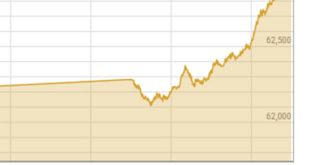Pakistan urgently needs to boost its exports to improve foreign exchange reserves and ensure long-term stability of its external account. Miftah Ismail, since taking over as Finance Minister, has highlighted the importance of increasing exports by enhancing domestic productivity and diversifying export products and markets. However, the current government has yet to develop a concrete export promotion plan, largely preoccupied with negotiating with the IMF to address immediate liquidity concerns.
Pakistan’s exports, which were less than 10% of its GDP in 2021, are a primary cause of its persistent current account deficits and low foreign exchange reserves, leading to recurring balance of payments crises. In contrast, successful exporters in the region like Vietnam, Malaysia, and Thailand have export-to-GDP ratios of over 50%, with Vietnam exceeding 100%.
Last year, Pakistan achieved its highest-ever dollar value of exports at $31.8 billion, a 25.5% increase from the previous fiscal year. However, this growth was mainly due to rising global commodity prices rather than an increase in the quantities of goods exported. Meanwhile, imports surged by 42% to $80 billion, exacerbating the trade deficit.
The current global crises, including the COVID-19 pandemic and geopolitical tensions, have further strained Pakistan’s economy, reducing foreign exchange reserves to less than $8 billion, enough for just over 1.5 months of imports. This has led to a sharp currency devaluation and increased inflation.
The government has responded with import restrictions to manage the balance of payments crisis, but these measures are short-term fixes. A long-term solution requires increasing domestic productivity and exports. A staff-level agreement with the IMF promises some relief, but without a concerted effort to boost industrial and agricultural production for export, the crisis will only be temporarily resolved.
To avoid recurring economic crises, Pakistan must focus on raising productivity and integrating its manufacturers into global value chains, ensuring competitiveness in global markets and diversifying into new markets and products.
 Pakish News We are an interactive media group that here a purpose to update users with the latest information. Our mission is to give you knowledge not only about your surroundings. We will also update you around the Globe.
Pakish News We are an interactive media group that here a purpose to update users with the latest information. Our mission is to give you knowledge not only about your surroundings. We will also update you around the Globe.



